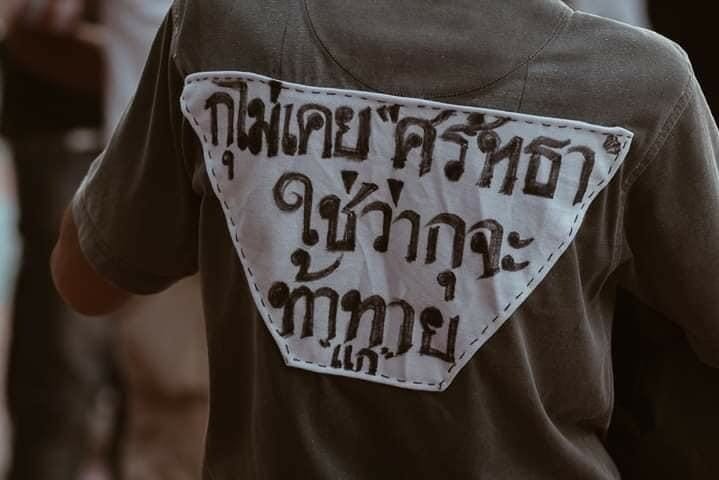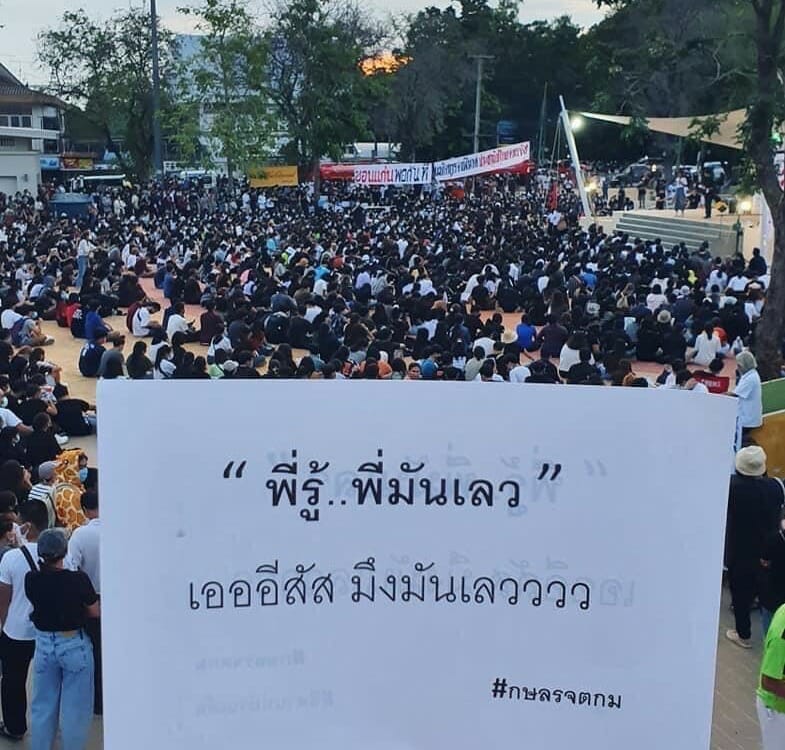A coalition of Thai youths, students and political activists has been continuing series of protests since mid-July 2020. When protests started, their requests appeared to target the government. They called for the dissolution of the parliament (fresh elections), the amendment of the constitution and the investigation into the cases of abduction and killing of Thai dissidents overseas.
The government offered no signs of listening to or positively responding to the student’s requests. Hence, the protests elevated, both in terms of the protester numbers and a broadened agenda. The gatherings at the Democracy Monument and at Thammasat University in August were a turning point in the course of the ongoing protest. One of the core leaders, Arnon Numpa, a young lawyer-turns-activist, called for an immediate reform of the monarchical institution, arguing that the king, Vajuralongkorn, has aggrandised his power through different channels. The reform HAD TO locate the monarchy back into the constitutional framework.

To understand the situation better, especially the prospect of monarchical reform, a Q&A dialogue will follow:
What are the ten commandments from protestors –
-
- To revoke Article 6 of the 2017 Constitution which restricts any accusations against the monarchy, to add an article which allows the parliament to investigate the wrongdoings of the monarchy, as had been enacted in the constitution declared by the People’s Party;
- To revoke lese-majeste law so as to allow citizens to freely exercise their right in expressing criticism about the monarchy and to give an amnesty to those prosecuted for criticising the monarchy;
- To revoke the Crown property Act of 2018 and to divide the monarchy’s assets under the control of the Ministry of Finance and his personal assets;
- To adjust the national budget on the monarchy in accordance with the country’s economic condition;
- To abolish the Royal Offices, Units with clear duties, such as the Royal Security, are to be under the control of other agencies. Unnecessary unites, such as the Privy Council, are to be disbanded;
- To dismiss giving and receiving donations by the Royal Charity Funds for the auditability of the monarchy’s assets;
- To prohibit the monarchy of expressing political opinions in public;
- To abolish the excessive one-sided glorification and propaganda in education regarding the monarchy;
- To investigate the deaths of those who criticised or had any relations to the monarchy;
- To prohibit the monarchy’s endorsement of any future coups.
Why is the call for monarchical reform happening now?
After all, it has been a long while since any political groups have ever taken the issue of the monarchy seriously, not since the red shirt gatherings some 10 years ago. It is time, for the youths, that Thais must seriously address this issue that has affected the lives of the people.
How could these protests play out? What’s the likely ending scenario?
It is unlikely that the government, or indeed the king, will give in the demands. Therefore, some measures will be put in place, aside from the use of legal instrument, to calm the protests. Since the coronation of King Vajiralongkorn, it is evident that he has sought to augment his power, politically and financially. It is unthinkable that for an ambitious king, like Vajiralongkorn, that he will walk away from power easily. Knowing his violent tendency, and rumours of his involvement in heinous acts against dissidents in Laos and Cambodia, it is also possible that violent tactics could be employed against protesters. In other words, a violent crackdown is not a remote reality.


